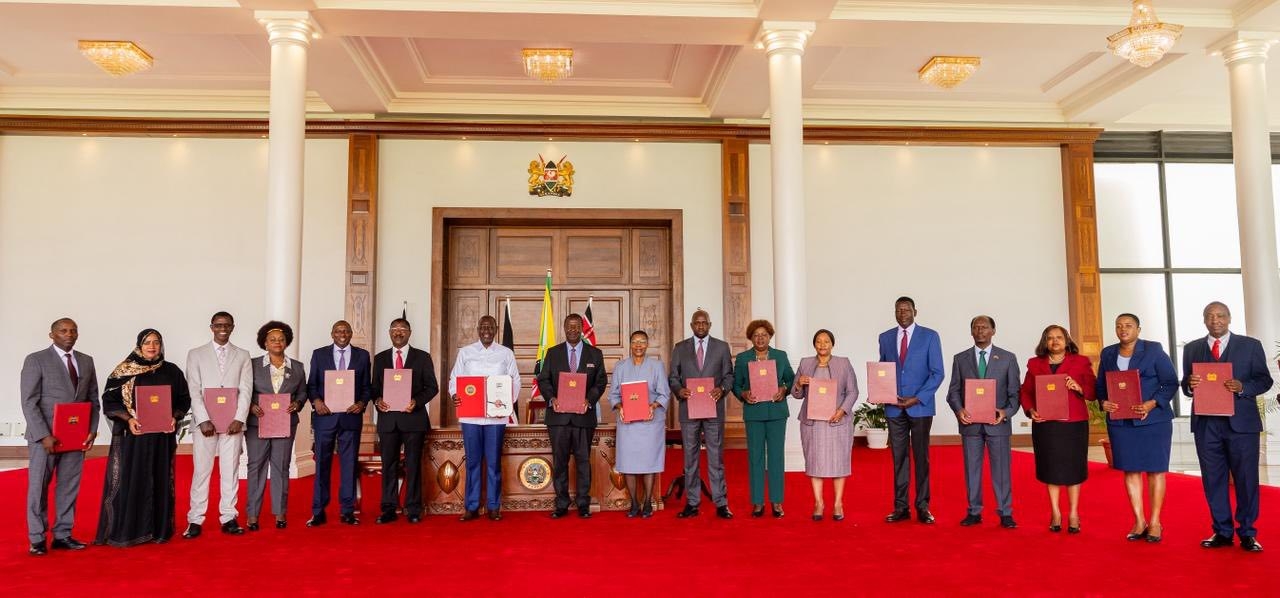The Kenyan shilling is expected to face increased pressure in July due to anticipated declines in capital inflows caused by political instability experts have warned.
Analysts from pan-African market insights firm, Stears, now say that following the protests from June 18 to June 27, the currency depreciated by 0.29 per cent.
This downward trend is likely to continue amid continued anti-government protests, and an upcoming IMF review.
The demos have seen the economy take a beating as businesses in the capital Nairobi and other major towns remain disrupted, with little economic activity.
Analysts argue that reduced capital inflows suggest limited foreign exchange reserves at the central bank's disposal, to support the currency in the near term.
Further, the shilling will also be influenced by the dollar, which is expected to remain strong in July as the US Federal Reserve maintains a hawkish stance before its rate cuts begin.
“However, the shilling's movements in July will ultimately depend on market sentiment regarding political developments, exchange rate expectations, and investor confidence. Stears forecasts the shilling to close Q3 2024 at Sh129.42 against the dollar,” Stears said in its monthly update.
It notes that although the ongoing protests may soon de-escalate, public discontent remains high.
“Regardless of the outcome, we expect relatively positive investor sentiments toward the Kenyan economy to wane. Investors will adopt a wait-and-see approach before bringing in capital,” the update reads.
This comes at a time that yields on Kenya’s sovereign dollar bonds declined to a five-month low, becoming one of the worst performing Emerging Market bonds since June 18, when the protests began.
“This indicates dwindling investor confidence. Additionally, we expect the protest and the government’s brutal response to feature in the IMF’s upcoming July review of the country's economic progress,” Stears notes.
The scenarios have placed Kenya in a tight spot as the IMF will be non-relenting on the conditions it has imposed on Kenya, as they are imperative for debt sustainability.
President Ruto is stuck between a rock and a hard place to please Kenyans, and the multilateral lender and investors will keenly watch to see how it all unfolds.
The analysts say tensions will likely de-escalate in the coming weeks but expect market sentiments towards Kenya to remain bearish, especially as Kenyans call for President Ruto to step down.
The unrest has worsened public discontent about the Ruto administration, raising security and safety concerns in Kenya that threaten near-term macroeconomic stability and the chances of a positive IMF review in July.
Kenya is currently under the Extend Credit Facility (ECF) and Extended Fund Facility (EFF) IMF conditional loan programmes that require the government to cut back spending and improve government tax and export revenue.
According to the May 2024 budget implementation review, fiscal authorities have made considerable strides to achieve these loan objectives.
The government had announced target of a 16 per cent increase in income over expenditure in the 2024 fiscal year.
"While these are commendable, the bulk of the austerity measures implemented due to these programmes have meant a substantial squeeze on income levels, worsening the cost of living in Kenya," the report reads in part.
Unfortunately, the hardest hit by these policy changes are the low-middle income earners, comprising over 70 per cent of Kenya's total consumer market.
Despite the bill being withdrawn, Kenyans still call for Ruto's impeachment, a demand likely to persist soon.












